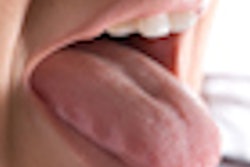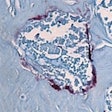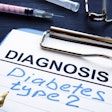
A breakfast sandwich filled with an egg and processed cheese, followed by a glass of juice and a donut may sound delicious, but it's far from healthy. This breakfast is loaded with carbohydrates and added sugars and will do more harm than good.
 Alvin Danenberg, DDS.
Alvin Danenberg, DDS.Eating this way will damage your gut bacteria, compromise your immune system, create chronic systemic inflammation, and, ultimately, change the bacteria and acid levels in your mouth, which puts you on the road to gum disease and tooth decay.
So, what should you eat for breakfast and the rest of the day? What are better choices for your mouth? Do you need to swear off all bad choices or replace them with appetizing substitutes?
First, take a deep breath, and take baby steps. Take your time and make changes that are appropriate for your tastes, comfortable for you family, and will eventually get you to your end goal. If you seem to get off track, don't worry. Review your accomplishments and get back on track.
Nutritional guidance
When patients come to me wanting to change their diets, I provide them programs. I have them start by completing a three-day food journal. In many cases, people are surprised when they review it and learn that they do not eat as healthfully as they thought. They also fill out health questionnaires. I review everything and then offer up what should be added or subtracted from their diets. Together, we create a plan that will work for them.
What a healthy diet looks like
Generally, a healthy diet will eliminate as many processed carbs and added sugars as possible, specifically sodas and juices. These drinks contain strong acids that can demineralize your teeth and start the tooth decay process, and the huge amounts of sugar they contain feed bad bacteria in the mouth, which are initiating factors causing tooth decay and gum disease. Artificial sweeteners in zero-calorie drinks also can damage your healthy gut bacteria, which affect your overall health, including the health of your mouth.
It's best to replace them with water, teas, seltzers, and coffee. If you need a sweetener, use organic stevia or monk fruit, which don't cause tooth decay.
Diets must be customized
There is no one-size-fits-all approach. Instead, I encourage whatever eating plan works best for the patient and contains foods that are not inflammatory to the body. I also drive home the fact that the patient is embarking on a new lifestyle and not a diet, which is a temporary way to eat and results in returning to old habits.
Patients who are looking to make changes are encouraged to consider the Mediterranean, paleo, ketogenic, and carnivore diets. Check out the details of these diets, find one that looks like it would work for you, and then work at your own pace to meet your goals.
- Mediterranean diet: This diet consists of eating high levels of vegetables, fruits, cereals (mostly whole grains), nuts, and legumes, as well as low levels of saturated fat, sweets, and meat. It also consists of high levels of unsaturated fat (mainly olive oil), medium-high levels of fish, moderate levels of wine, and medium-low levels of dairy products, such as yogurt and cheese.
- Low-carbohydrate diet: This diet restricts processed carbohydrates and sugars, which helps avoid high blood sugar levels and high blood insulin levels. A low-carb lifestyle improves the garden of beneficial gut bacteria. Processed carbohydrates can be replaced with oats, raw potato starch, cooked and cooled rice, and green bananas.
- Paleo diet: This diet mimics the diet of our ancestors from the Old Stone Age. This diet requires a high consumption of fruits, vegetables, and various herbs and spices, and moderate-to-high consumption of meats, organs, fish, and eggs. Additionally, it consists of moderate consumption of nuts and seeds. All processed foods, legumes, grains, pasteurized dairy products, and processed vegetable and seed oils, except olive and coconut oil, are excluded.
- Ketogenic diet: A keto diet reduces carbohydrate intake to less than 50 grams per day. At this level, insulin is kept to low levels, and cortisol levels are slightly elevated. This will induce the production of ketone bodies in the liver, which will be used as the main energy source for the body.
- Carnivore diet: The carnivore diet is an extreme version of the keto diet. Unlike the keto diet, it excludes all fruits, vegetables, nuts, and seeds. The carnivore diet requires eating only wild-caught and pastured animals from nose to tail. Since the carnivore diet eliminates all plants, it importantly avoids the abundance of antinutrients, such as lectins, oxalates, and phytic acid, found in plants that have the potential to cause many gut problems.
If you are interested in getting started, email me at [email protected], and I'll send you a PDF of the 3-Day Food Journal with my written guide to assist you in interpreting your journal.
Alvin Danenberg, DDS, has retired from the private practice of periodontics in Bluffton, SC. He continues to be on the faculty of the College of Integrative Medicine and created its integrative periodontal teaching module. He also spent two years as chief of periodontics at Charleston Air Force Base earlier in his career. His website is drdanenberg.com.
The comments and observations expressed herein do not necessarily reflect the opinions of DrBicuspid.com, nor should they be construed as an endorsement or admonishment of any particular idea, vendor, or organization.


















